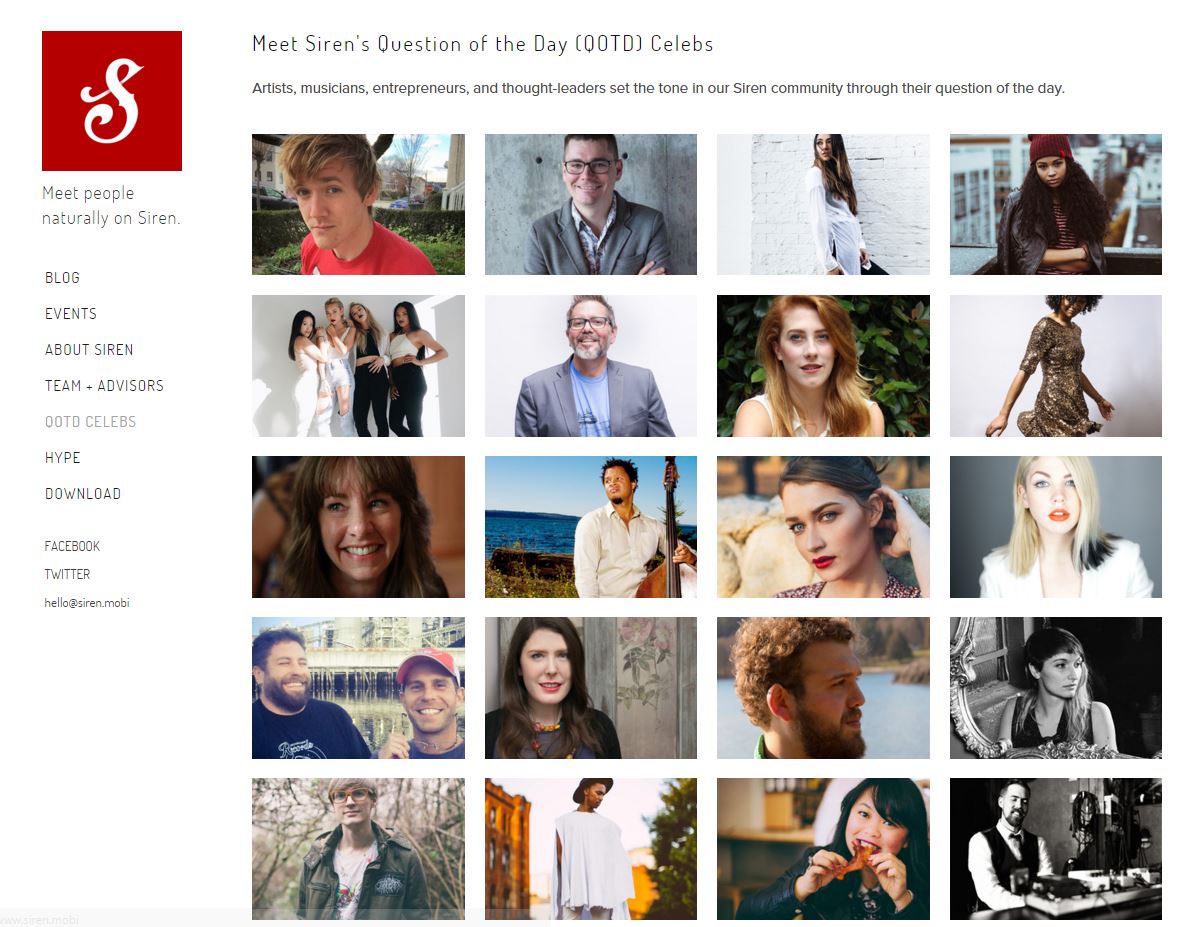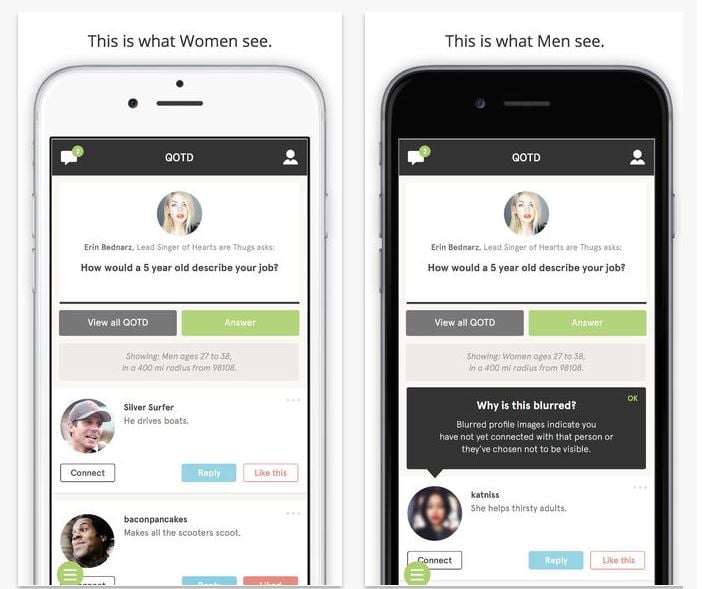People
Dating App Created by Female Artist Aims to Discourage Harassing Guys
It also aims to help you "charm someone's pants off."

It also aims to help you "charm someone's pants off."

Brian Boucher


Female-friendly dating app Siren was created by an artist.
Photo: courtesy Siren.
There are plenty of dating apps that aim to hand the reins to women, but now there’s even one that was designed by a female artist.
Siren, named for the mythical beauties who lured sailors to shipwreck on rocky shores, was founded by Seattle artist Susie J. Lee, who has often created mixed-medium works that use technology to comment on connection and isolation.
In fact, Lee hopes that everything good about the app stems from her artistic training and sensibility.
Related: What if Your Favorite Artists Had Tinder Profiles?
“As an artist, I hope that comes through over and over again,” Lee told ThinkProgress. “This is a site that should be compassionate to people who want to make meaningful connections, and how do you do that?”
It was an art project that spurred Lee to get a smart phone in the first place, which led to her investigation of dating apps, Lee said in the same interview. (Funny enough, at the time, the tech-savvy artist had had the smart phone for only one year.)
Internet dating has proven a fruitful topic for other artists, such as Tully Arnot, who created a Tinder-swiping robot, and Anna Gensler, who eviscerated rude Tinder matches in unflattering portraits. There’s even a Grindr-esque app that pairs performance artists with audiences.
Before getting an MFA from the University of Washington, Lee earned a bachelor’s degree in molecular biophysics and biochemistry from Yale and a master’s in science education from Columbia. Along the way, she’s shown her work at venues like the Denver Art museum and the Frye Art Museum, Seattle. She was also included in the Crystal Bridges Museum of Art’s contemporary-art roundup, “State of the Art.”
Like Siren, some of Lee’s previous works have also called on mythical references, like the 2012 operatic performance Venus and Adonis and a 2011 video portrait of three women (a writer, a choreographer, and a curator) that’s titled Phaedra, Cassandra, Penelope.
Previous works also employed digital means to allow interaction between viewers and artworks, perhaps foretelling her predisposition to create an application meant to digitally foster connections between people.
Contact (2011) invited viewers to call, text or email a mixed-media sculpture that followed up with a message the next day, asking questions like “Are you thinking of me?” and “Am I not a priority?” And the interactive 2009 video installation Liminal Measures involved a projection of a girl who beckoned viewers to pursue her as she moved away and vanished when the viewer reached the projection surface.

Photo: courtesy Siren.
Siren aims to be better than other digital dating services, and even when talking trash about the competition, Lee resorts to an artist’s vocabulary: “I didn’t believe anybody else’s self-portraits,” she told The Stranger’s Jen Graves. Siren aims to create a more dynamic format than other apps, whose “static” profiles Lee found unappealing; she’s compared other sites’ inventories of humans to morgues.
By contrast, Siren lets men see women’s answers to a new question each day before they ever see their faces, in hopes of building attraction based on affinity rather than appearance. (When the app started, the questions were penned by Seattle artists.)
Artists often deal with visibility and lack thereof, and one of Siren’s main selling points is that it aims to discourage the creepy, harassing guys who plague other dating sites and apps by allowing women to remain invisible until they decide they like a guy.
The app also aims for inclusiveness. It allows you to indicate whether you are male or female or if you don’t classify yourself in that binary way. It also lets you indicate whether you’re open to dating transgender people. Another fun feature is that it allows women to sign up invisibly so that they can check out men’s profiles and point them out to their friends—a function called “wing woman.”
And, back to those mythical women, the “siren call” feature lets women send out a signal to people nearby that they’re ready to meet up right away, be it for coffee or something racier.
The app’s attempt to create a friendlier, safer environment seems to be paying off; the company claims to have had zero reports of harassing messages. And it has earned plenty of press and some plaudits, winning Geekwire’s app of the year award for 2015.
But all that emphasis on safe spaces and community doesn’t distract the company from the primary goal of any dating application. After all, just look at its tagline: “We hope we can help you charm someone’s pants off.”